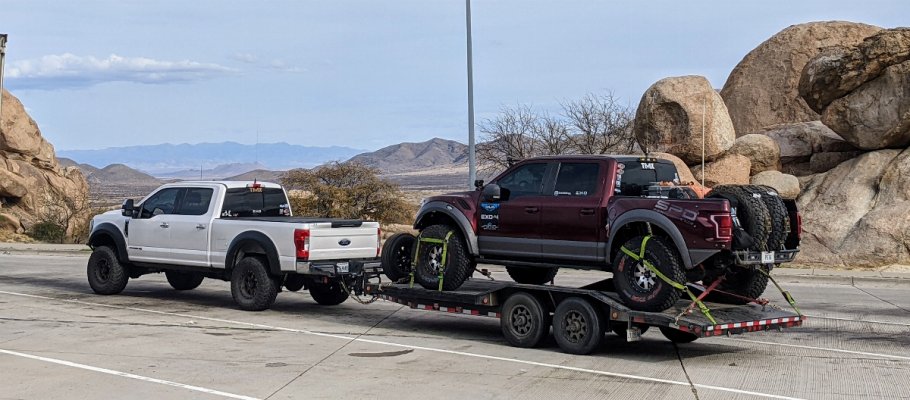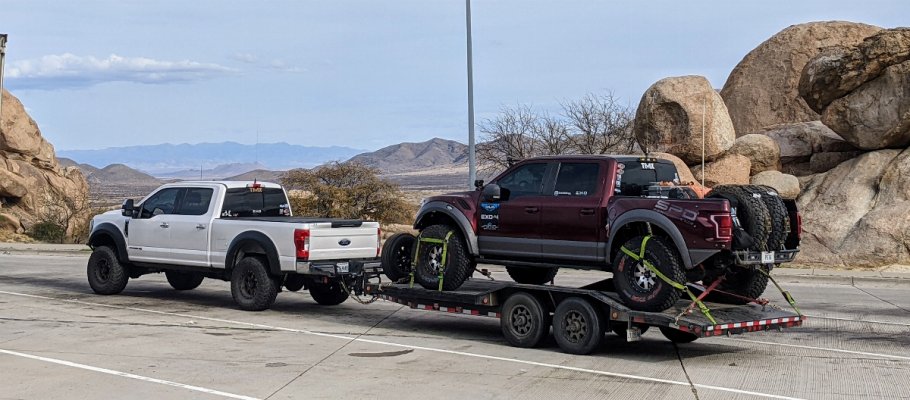A trailer works great if all your destinations have unlimited space, but most don't. (We have a similar trailer we use if we're taking our Polaris Ranger or other stuff; love it when we're going to the desert or the dunes.) But, like most folks with diesel pushers, we usually drive to a place, set up camp, and then use the towed vehicle ("toad") to get around and play. Sometimes we're there for a day, sometimes a week. If its flat-towed you pull two pins, pull the light, air, and break-free lines, and you're on your way.
We camp in many places where there is no room to leave the trailer attached to the coach or store it nearby, like USFS campgrounds, many state campgrounds, many RV parks, and the homes of most relatives and friends. In many cases we have to stop somewhere close to our final destination to disconnect the toad, because the final destination doesn't even have room to turn around with the toad connected. That's the case when we visit my brother, so we stop at a supermarket five miles from his house, disconnect, and my wife follows me to his place. Once I have the coach parked there's ample room for her to park the toad in front, but there's no place to store the trailer within 10 miles or more.
Flat-towing is MUCH more convenient. Less than two minutes to disconnect, and about twice that to reconnect. I'm pretty fast with the trailer, but every aspect of it's use takes MUCH longer, especially hooking it up (because it doesn't move independently like a Jeep or a Raptor, so maneuvering to hook up is much harder.) I've connected and disconnected the toad in 100 degree heat, and pouring rain; I wouldn't want to spend an extra 30 minutes doing either.



